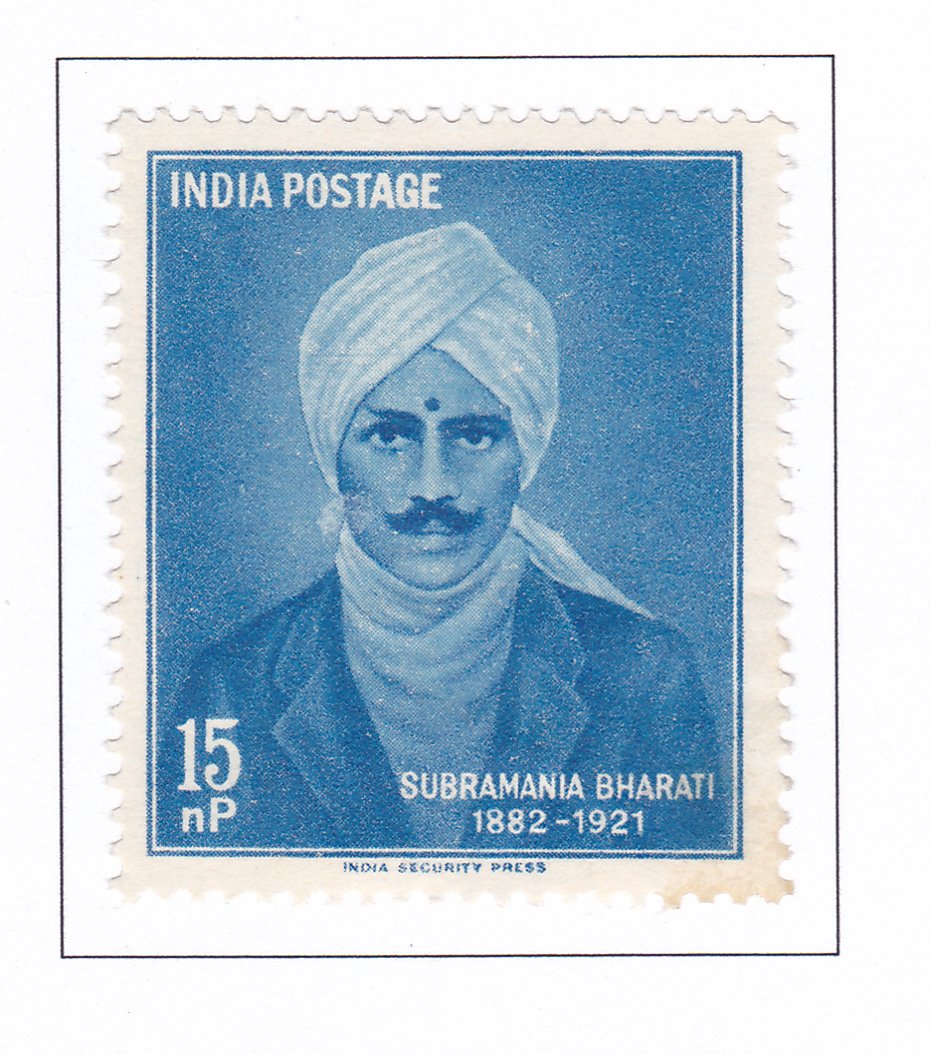Subramania Bharati 1882-1921

Technical Data
| Date of Issue | September 11, 1960 |
|---|---|
| Denomination | 15 nP |
| Quantity | 11,000,000 |
| Perforation | comb 14 x 13½ |
| Printer | Security Printing Press, Nashik |
| Watermark | Asokan Capital Multiple [Up] |
| Colors | Blue |
| Catalog Codes |
Michel IN 315 Stamp Number IN 331 Yvert et Tellier IN 119 Stanley Gibbons IN 429 |
| Themes | Authors | Commemoration | Famous people | Literary People (Poets and Writers) | Literature | Men |
Subramania Bharati emerged during the late 19th century, a transformative era for India marked by emotional fervor, intellectual shifts, social and political upheaval, and cultural rejuvenation. This period witnessed the birth of significant movements, such as the establishment of the Indian National Congress in 1885 and the Partition of Bengal agitation in 1905-6, which symbolized both the end of subservience to foreign rule and the rise of militant nationalism.
Born in 1882, Bharati, a celebrated Tamil poet, epitomized the spirit of his age, embodying its aspirations for freedom, patriotism, poetic creativity, and visionary activism. From a young age, he exhibited prodigious talent, earning the title of “Bharati” for his poetic prowess. After receiving education in Tinnevelly and mastering Hindi and Sanskrit in Benaras, Bharati immersed himself in journalism, expressing his passion for freedom and attending the Congress Session in Madras in 1904.
Facing persecution by imperialist authorities, Bharati sought refuge in Pondicherry, where he found inspiration from luminaries like Shri Aurobindo and continued his poetic endeavors. Despite his exile, Bharati’s ardor for his country compelled him to return to Madras in 1915, where he continued his journalistic and poetic pursuits until his tragic death at the age of 39 in 1921.
Bharati’s legacy lies in his elevation of Tamil literature, his profound impact on political thought through poetry, and his ability to inspire millions with his passion for freedom. His compositions, spanning patriotic songs, devotional hymns, and social commentary, showcase his versatility, musicality, and unwavering commitment to the ideals of liberty and social justice.
Through works like “Kannan Pattu,” “Panchali Sapatam,” and “Kuyil Pattu,” Bharati delved into themes of spirituality, nationalism, and human emotion, leaving an indelible mark on Indian literature and culture.
